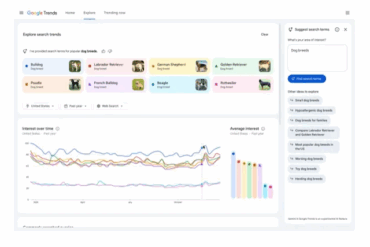In his new book, How to Stay Smart in a Smart World, Gerd Gigerenzer takes a clear-eyed look at how we’re using technology to make decisions—its capabilities and limits.
“Should we simply lean back and relax while software makes our personal decisions?” he asks. “Definitely not.”
Gigerenzer, a psychologist who directs the Harding Center for Risk Literacy at the Max Planck Institute for Human Development in Berlin, has spent his five-decade career studying decision-making. In How to Stay Smart, he takes aim at two opposing camps who share the same assumption—that algorithms know better than humans. There’s the tech-savior camp, who claim we are on an inevitable path toward algorithmic superiority and that’s a good thing; only technology can save us from our feeble-minded selves. And then there are those in the doomsday camp, who claim it’s only a matter of time before an artificial superintelligence wipes us out.
The task Gigerenzer sets out for himself is to articulate why their shared assumption is flawed—there are times when algorithms will perform better than humans and times when they won’t. And these differences matter for how we think about and behave in our relationship with technology.
Gigerenzer shows that a deeper understanding of what algorithms do and how they’re being deployed can save us from the whiplash between reverence and resignation. The outcome of this understanding, Gigerenzer hopes, is the realization that we have a choice. That we need not blindly trust or fear the algorithms but can “stay smart” even as technology advances.
Gigerenzer shows that a deeper understanding of what algorithms do and how they’re being deployed can save us from the whiplash between reverence and resignation.
“Staying smart does not mean obliviously trusting technology, nor does it mean anxiously mistrusting it,” he writes. “Instead, it is about understanding what AI can do and what remains the fancy of marketing hype and techno-religious faiths. It is also about one’s personal strength to control a device rather than being remote-controlled by it.”
How to Stay Smart covers a lot of terrain. From dating algorithms that promise love to mass surveillance that promises protection to the limits of algorithms in an unstable world, as well as the psychology of social media. Throughout, Gigerenzer connects these topics to discussions about human freedom and dignity and reminds us what’s at stake if we give up our personal control. The book, he writes, is “a passionate call to keep the hard-fought legacies of personal liberty and democracy alive.”
This summer I had a chance to speak with Gigerenzer about his new book over video call. He joined from his summer cottage in Germany, I from my office in Prague. In our conversation, we focused on the consequences of the internet’s original sin, mass surveillance, social credit scores, and why what we’re experiencing is less like 1984 than something B. F. Skinner might have dreamed up. We also touch on why understanding what algorithms can and cannot do might help us find the courage to stay smart and stay in control.
Our conversation has been edited for clarity and length.
Click HERE to read remainder of the article.
By Evan Nesterak
Evan Nesterak is the co-founder and editor-in-chief of the Behavioral Scientist.
Sourced from BEHAVIORAL Scientist






